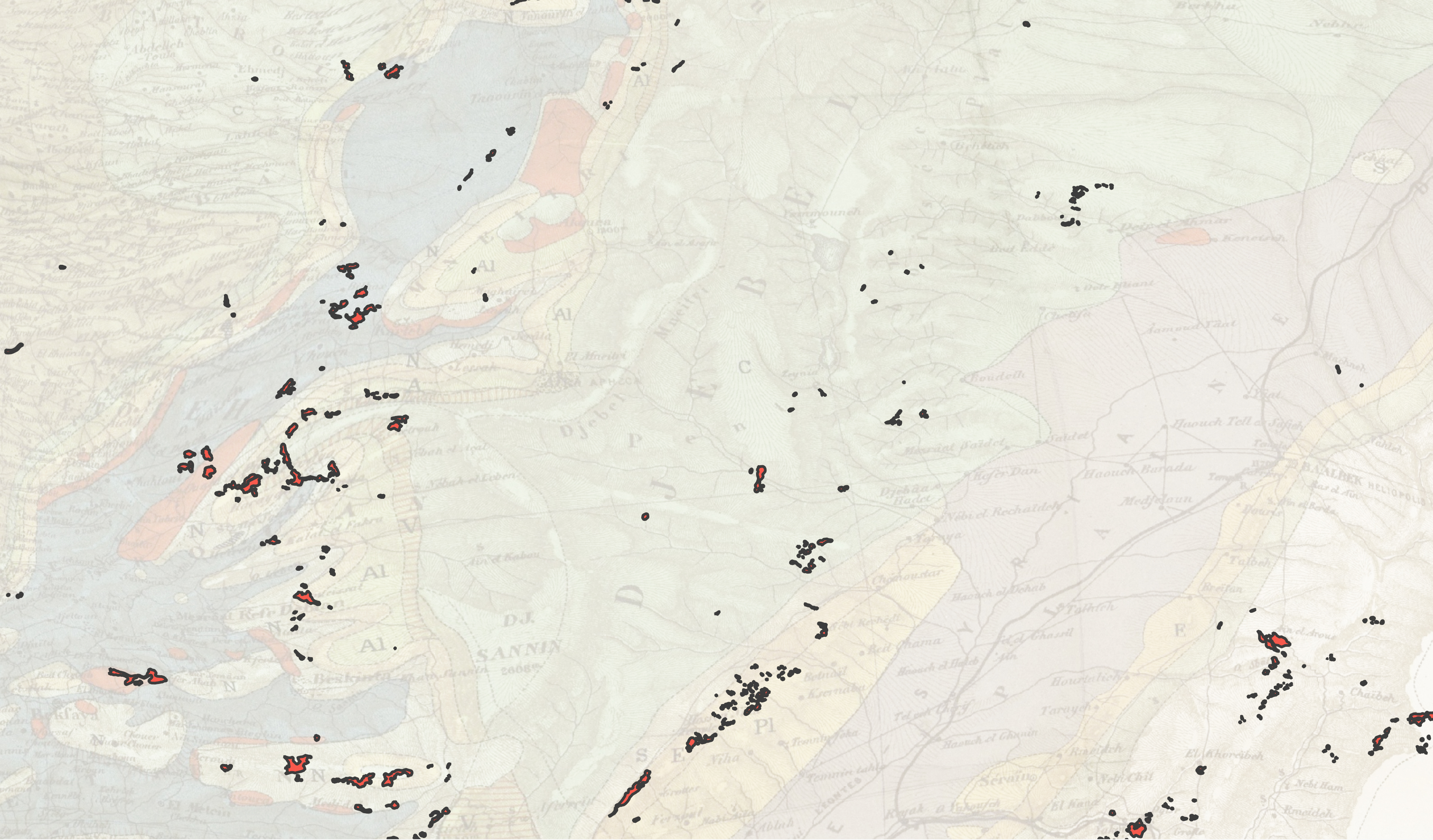Monica Basbous
Mar 2 – Mar 11, 2022
Wednesdays and Fridays 5:00 PM–7:00 PM (Beirut time/GMT+2)
This workshop will be held online
REGISTRATION IS NOW CLOSED
By negotiating visibility and erasure, complexity and abstraction, documentation and fiction, maps oscillate between the desire to see, and the need to bring forth, worlds and realities. Often produced from positions of power and knowledge, maps are inherently politically motivated instruments, deployed to describe and prescribe carefully chosen objects, relationships, and possibilities.
This workshop is loosely structured around the process of producing a new geological map of Lebanon. A map made by French Jesuit archeologist and geologist G. Zumoffen in 1926 provides a starting point for spatializing and historicizing contemporary urban and territorial transformations. Using open-source tools, the archival document is geo-referenced using its detailed account of villages, towns, and cities, and is used as a basis for projecting two metabolically entangled phenomena: unregulated cement quarries and coastal land reclamation projects. In this rewriting of the colonial geological map, sites of extraction and accumulation are re-inscribed in geo-historical time-scales. Following this thread – and drifting from it – the workshop will discuss the esthetics and politics underpinning the production of spatial and geographic knowledge.
The workshop is open to artists, map-makers, and researchers from all disciplines and fields who wish to gain a geographic perspective on their interests, and to acquire a useful technical skill that can be applied to their own investigations. Participants will learn to georeference maps using QGIS, allowing them to derive new readings and representations of spaces. Participants are expected to be comfortable using digital software, and must have access to a computer device that can store and run QGIS. No prior theoretical or technical knowledge is required for this workshop.
The workshop will be held online twice a week over 2 weeks (total of 4 sessions). Every session is approximately 2 hours long and can accommodate up to 12 participants. Attendance to all sessions and assignments are required.
Monica Basbous is an architect, researcher and educator based in Beirut since 2013. Her practice focuses on questions of urban mobility, informal spatial practices, politics and representations of space, and speculative geographies. Monica teaches architectural design at the Lebanese American University since 2017, and was lead researcher and partner in Public Works Studio between 2016 and 2020. She holds a MSc. in Architecture from the Ecole Polytechnique Fédérale de Lausanne (2012) and was a fellow of Ashkal Alwan’s Home Workspace Program (2015-2016).









